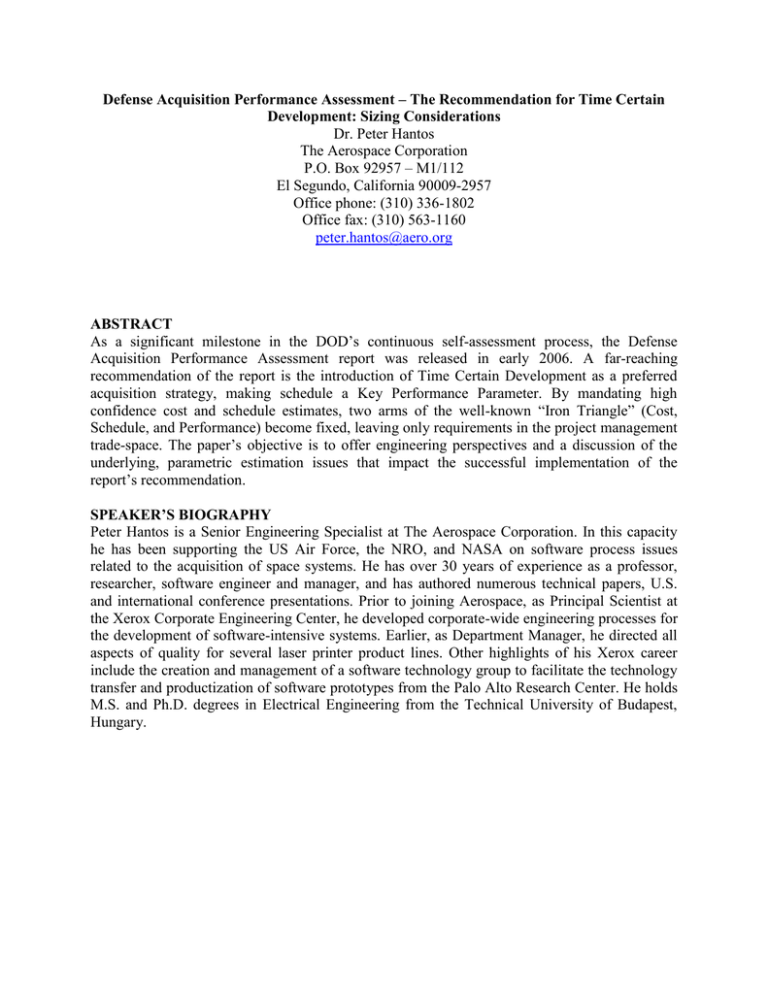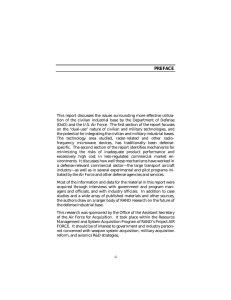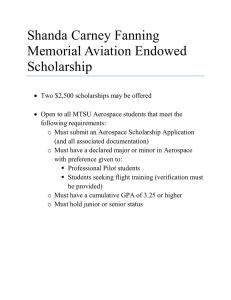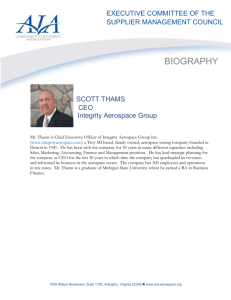Defense Acquisition Performance Assessment – The Recommendation for Time Certain
advertisement

Defense Acquisition Performance Assessment – The Recommendation for Time Certain Development: Sizing Considerations Dr. Peter Hantos The Aerospace Corporation P.O. Box 92957 – M1/112 El Segundo, California 90009-2957 Office phone: (310) 336-1802 Office fax: (310) 563-1160 peter.hantos@aero.org ABSTRACT As a significant milestone in the DOD’s continuous self-assessment process, the Defense Acquisition Performance Assessment report was released in early 2006. A far-reaching recommendation of the report is the introduction of Time Certain Development as a preferred acquisition strategy, making schedule a Key Performance Parameter. By mandating high confidence cost and schedule estimates, two arms of the well-known “Iron Triangle” (Cost, Schedule, and Performance) become fixed, leaving only requirements in the project management trade-space. The paper’s objective is to offer engineering perspectives and a discussion of the underlying, parametric estimation issues that impact the successful implementation of the report’s recommendation. SPEAKER’S BIOGRAPHY Peter Hantos is a Senior Engineering Specialist at The Aerospace Corporation. In this capacity he has been supporting the US Air Force, the NRO, and NASA on software process issues related to the acquisition of space systems. He has over 30 years of experience as a professor, researcher, software engineer and manager, and has authored numerous technical papers, U.S. and international conference presentations. Prior to joining Aerospace, as Principal Scientist at the Xerox Corporate Engineering Center, he developed corporate-wide engineering processes for the development of software-intensive systems. Earlier, as Department Manager, he directed all aspects of quality for several laser printer product lines. Other highlights of his Xerox career include the creation and management of a software technology group to facilitate the technology transfer and productization of software prototypes from the Palo Alto Research Center. He holds M.S. and Ph.D. degrees in Electrical Engineering from the Technical University of Budapest, Hungary.


